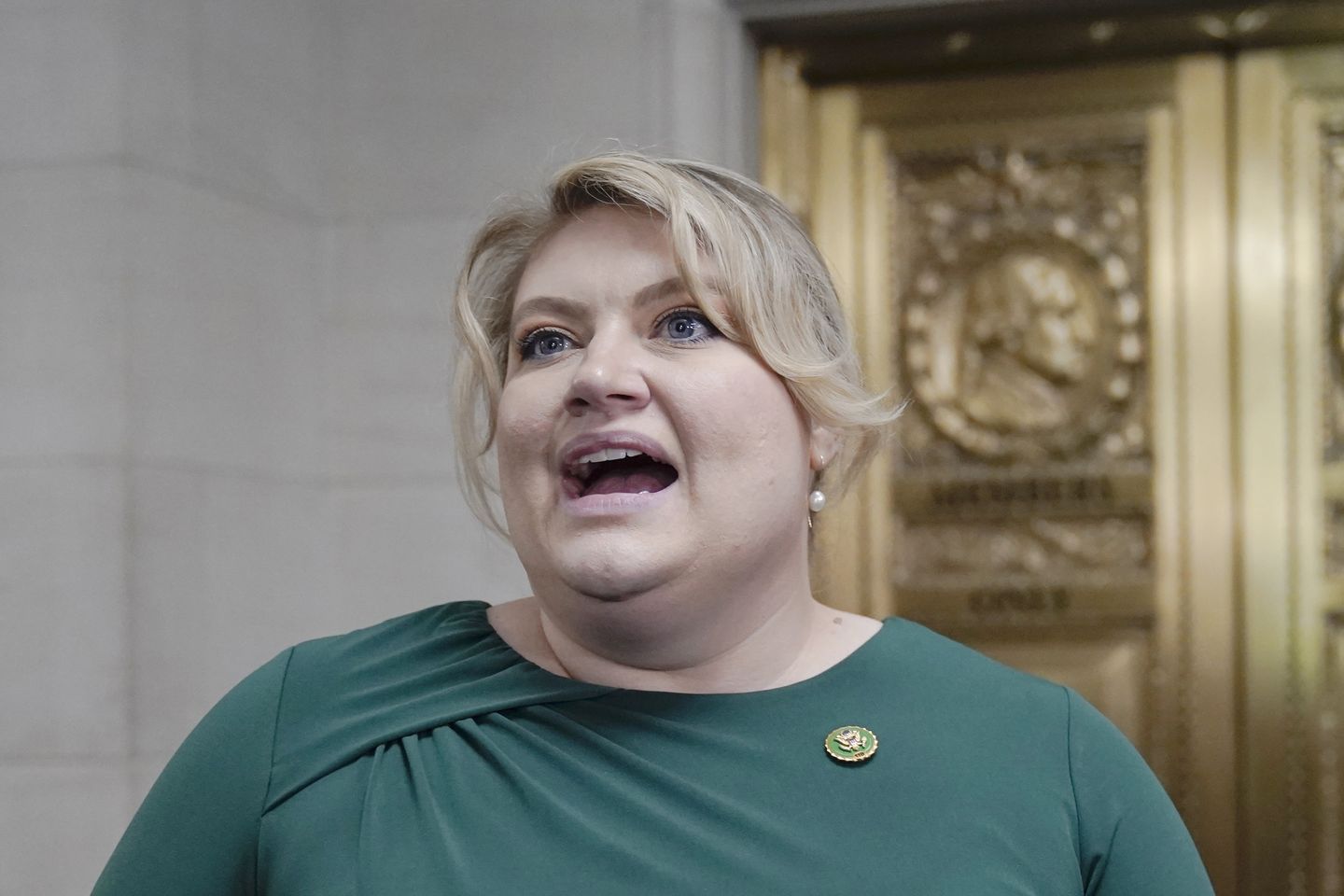
House Republicans are struggling to coalesce around a proposal for scaling back the expansion to Medicaid made under Obamacare as they search for savings for President Trump’s “big, beautiful bill.”
The issue has bedeviled GOP lawmakers as they seek to protect Medicaid benefits for the most vulnerable while cutting waste and fraud in the massive government health insurance program.
Federal spending on Medicaid ballooned after Democrats’ 2010 health care law expanded the program to allow states to cover most adults with incomes up to 138% of the poverty level. States had to opt into the expansion, and 40 states, plus the District of Columbia, did so.
Republicans are now eyeing ways to cut back federal spending on Medicaid without directly cutting benefits, with many targeting the Obamacare expansion as waste that undermines Medicaid’s original intent.
Medicaid was formed to help vulnerable populations, like people with disabilities, pregnant women, and low-income parents with minor children.
Many Republicans say that by reducing federal spending on able-bodied adults in the expansion population, they can strengthen the program for those vulnerable populations.
Others in the party are urging caution about changes under consideration that would indirectly lead to people losing Medicaid benefits.
The House Energy and Commerce Committee is hoping to make final decisions in the coming days on what Medicaid proposals to pursue so the panel can mark up its portion of the budget reconciliation package next week.
“There is a consensus that Republicans want to protect Medicaid for those that need it most. And we’re definitely committed to ensuring that waste, fraud and abuse is cut,” Rep. Kat Cammack, Florida Republican, told The Washington Times after committee members met Thursday. “But as far as the specifics, no one is prepared to issue any formal statement about what we’re planning on doing.”
There are two main proposals Republicans have floated for scaling back the Obamacare expansion.
One is to change the formula used to determine the federal-state cost sharing for Medicaid, called the federal medical assistance percentage, or FMAP. The federal share for the base Medicaid population ranges from 50% to 83%, but for the expansion population, the federal government covers 90%.
Many conservatives favor changing the FMAP formula for the expansion population, but several moderates have said they won’t support FMAP changes, and the idea has largely been taken off the table.
Instead, Energy and Commerce Chairman Brett Guthrie, Kentucky Republican, suggested imposing per capita caps on the expansion population, which would limit the federal government’s spending per Medicaid beneficiary.
Some moderates said they are open to that, depending on how it’s structured.
Rep. Jefferson Van Drew said he would only support per capita caps on the expansion population if they do not take immediate effect and are tied to medical inflation. That would still allow for increases in Medicaid beneficiaries and spending, but it would limit the growth, the New Jersey Republican said.
“In government, you cannot just say, well, we can have uncontrolled growth with no limits to anything,” Mr. Van Drew said.
Some conservatives said they do not support per capita caps because they would not do enough to limit Medicaid growth.
“Per capita caps is basically kind of tossing in the towel and accepting and cementing the current broken system. I think it risks locking in some of the inflated prices and other things,” said Rep. Chip Roy, Texas Republican.
For Medicaid to be truly reformed, he said, Republicans have to get rid of the 90% FMAP incentive and eliminate the Medicaid provider tax loophole.
States use taxes on hospitals and other health care providers to finance their share of Medicaid. But in what Mr. Roy calls a “kind of money laundering scam,” some states use the tax revenue to increase Medicaid payments to the same providers, which then inflates the total cost of their Medicaid programs and the share the federal government must contribute.
The disagreement among Republicans about whether to change the FMAP formula or use per capita caps to limit Medicaid expansion may have led the Energy and Commerce Committee to scrap both proposals.
“I don’t think you’re going to see any FMAP changes, and the per capita caps evidently are off the table now,” said Rep. Earl L. “Buddy” Carter, Georgia Republican who chairs the panel’s health subcommittee.
The Times reached out to Mr. Guthrie’s office for comment.
Mr. Guthrie, after the meeting with his panel, headed to the White House with other House GOP leaders — Speaker Mike Johnson and Majority Leader Steve Scalise of Louisiana and Ways and Means Chairman Jason Smith of Missouri — to talk to Mr. Trump about proposals under consideration.
In addition to Medicaid, Republicans still have to make key decisions on taxes under the Ways and Means Committee’s jurisdiction before that panel can mark up its portion of the bill.
Seven of the 11 committees involved in the process conducted markups this week, and Mr. Johnson said he expects the other four to do so next week. The speaker’s goal is to pass the bill through the House by Memorial Day.
“The final details are coming together, and they’re coming together rapidly. And I think we’re right on schedule,” Mr. Trump said after the meeting. “It will be the biggest bill ever passed in the history of our Congress.”
Mr. Trump spoke about Medicaid without delving into specific GOP proposals, but his comments echoed talking points of GOP leaders who want to roll back Democrats’ expansion of the program.
“We will be saving Medicaid for Americans in need,” he said. “We will not let the Democrats destroy it and all the waste, fraud and abuse that they seem to love.”
“We will be saving Medicaid and strengthening it,” the president added. “It will be actually very strengthened.”
Mr. Trump also offered a warning for Republicans not to let their disagreements derail the bill, saying, “I won’t like it if it doesn’t pass.”















